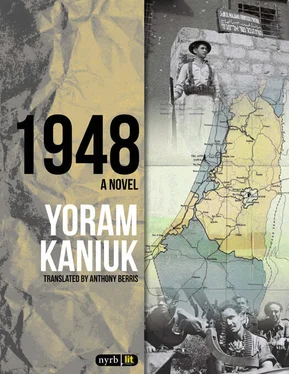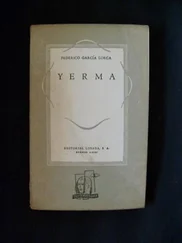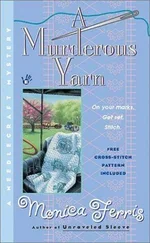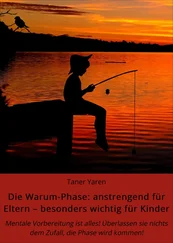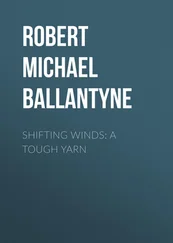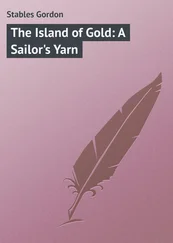Meanwhile the fighting on the hill continued and there were still no communications between the two battles, ours and the one on the hill, and food trucks to Jerusalem fell apart on the road and armored vehicles were hit. Shouts could be heard from one of them, the firing was intense, I didn’t know how bullets whistle, I didn’t have time to be frightened because it all looked like a film at the community center, and then the officer from the armored vehicle, whose men had all been wounded, yelled that he can’t carry on, the blood’s flowing, some have been killed and the others wounded, and he won’t be taken prisoner because of the ill-treatment. And “Shalom comrades, over and out,” and the vehicle with its wounded blew up and a column of smoke rose and there was silence.
The Arabs withdrew to regroup. Some of our fighters came from agricultural training groups and had brought musical instruments that fell amid the shells. I heard a flute playing itself in contrast with something that was perhaps a machine gun. Afterward we slept like logs. It was cold. We slept on the grass. Each man and his rifle with its swastika clutched to him. The food trucks stood in the shade of the trees. There was noise. We had no food. They gave out a little water. Some guys had brought stuff from home but the officers took everything not needed for the fighting and said that at six after the war they’d get it all back in Mugrabi Square by the phone box.
We were issued twenty-five rounds. Moshe Katz said that this is a historic day and I remember thinking that ever since I joined the Palmach I’d been hearing that this is a historic day. I tried to walk and stumbled, and I saw Arabs streaming toward us. Some of our fighters were moved to fire from the other side of the wood and we went back to the burned-out armored vehicle.
The dead soldiers inside it were laid out in a line on the ground. They looked like slabs of meat in a butcher shop. Then we buried them. Some twenty people were killed. There was a profound sadness in the air. Two days later we started over. The convoy of armored vehicles and trucks stood in the dark waiting for the order, and it all sounded like a big locomotive warming up its motors. The officer came along and said he’d heard from my companions on Course No. 9 that I could see in the dark. I told him that was right. He said, Right now you’re going to do something for the nation, and he put me in front of the convoy. We were ordered to start moving. I marched along the ruined road as behind me a big convoy of trucks and armored vehicles moved quietly, and I’m there to make sure there aren’t any wires stretching from one side of the road to the other that are connected to mines. I found a few and pointed at them and people came right away and detonated the mines.
You’ve got to be a perfect idiot, more than perfect, to walk through a minefield and believe it’s for the nation, which I’d never met personally. When we got to wherever we were going, the officer came up to me, I don’t remember who he was, apart from the fact that he was killed a short time afterward, and said I’d been fine and he gave me a round cigarette, which were the best. Usually when there were cigarettes we’d get seven round ones or twenty flat Latif. It was nice to smoke the round cigarette with its Virginia tobacco.
Later we reached the junction. Dawn “became manifest,” the way the teacher Blich liked it, and I got into one of the armored vehicles and we drove in a convoy toward Jerusalem. We came under fire on the way. We fired back. Perhaps I hadn’t yet digested that earlier on the road I’d been a dead man walking so that others would live. We reached the lower pumping station in Bab el-Wad and rested. There was more shooting. This time we ran up the hill and fired at a gang that left behind cigarettes, which we collected, and one of us was wounded. On one of the dead Arabs we found a map of Kiryat Anavim drawn with a pen. Somebody said, I didn’t know that Arabs knew how to draw. Yes, he was told, but in Arabic. What Arabic? he said. You speak Arabic, you don’t draw in it.
We went back down and the convoy continued on its way. I was put onto a food truck and was told that I was now an escort. I sat between two sacks of flour and there was shooting here and there but nothing special. We unloaded part of the load at Kiryat Anavim and carried on toward Jerusalem. The road was narrow and wretched. On the seven bends at Motza the truck groaned. The driver was killed by sniper fire from Qaluniyya and the truck began rocking from side to side. Somebody ran and jumped into the cab, stood on the brakes, lifted the dead driver onto our flour sacks, and was killed by a bullet. There was nobody who knew how to drive, and a guy who was with us on Course No. 9 said that Yoram drove stolen cars with Ari-nom-de-plume. I didn’t have time to explain that I’d never driven a car, that it was Ari-nom-de-plume, and I got into the cab. I remembered that you had to release the hand brake, I pressed down on the clutch, the truck groaned, I held on to the big steering wheel, the truck shivered because two of its tires had been blown out, and I drove on the wheel rims. We drove for an hour, maybe an hour and a half. I don’t know how. We were taking fire all the time, and a bullet smashed the left wing mirror so I couldn’t see what was behind me because the big mirror above the wheel was smashed too. At Qaluniyya by the seven bends I drove slowly. I’ve no idea how I knew how to drive. I had no contact with the guys in back because of the smashed mirrors but I knew they were firing and I heard a yelp from someone who’d apparently been hit. I suddenly realized that the so respectable and so gentle yelp had come from the beautiful daughter of Ernst, my father’s bosom friend, who I later visited in hospital in Jerusalem before I was wounded too and hospitalized. Ruth, that sweet blond girl I’d loved as a child, limped for the rest of her life.
We reached Jerusalem on a Saturday. We didn’t know what day it was. The city was starving. The people clapped for us. In the ultra-Orthodox neighborhoods they raised white flags and threw stones at us. I was angry. I went with Ari-nom-de-plume, who got down from the second truck, and we beat up a few of the stone throwers. They cursed us in Yiddish and shouted “ Shabbess, Shabbess . No driving on the Sabbath!” Ari-nom-de-plume gave one of them a punch that flattened him against a wall and said, That’ll teach you what Shabbess is.
Beit Yuba — an alternative name (and in the interest of good taste and the love I had for the man I’m going to tell you about, I’m changing his name too and I’ll call him N.). There was a vast gentleness in the village, which was set in an Eretz Yisrael landscape that no longer exists, on a hillside shaded by soft tamarisks and jujubes and thickly foliaged pines. It was a village that had witnessed bitter fighting that was now over. In our war there, after the wars of the Romans and the Crusaders who had faded away from our land, we had triumphed.
One of ours, whom I knew but whose name I don’t remember, was hanging from a tree, cut to ribbons and bound with ropes, his member stuck into his mouth. N. stood facing his mutilated comrade and his features contorted with rage. His wild hair stood on end, matted with dirt, his clothes torn, his feet in boots of different colors because they’d been taken from two different corpses — and he apparently cried out but we didn’t hear, and perhaps we’d already walked into the village and lay tired in the shade of a house under a fig tree, and were cleaning Stens and rifles, and searching for Arab records to take, and perhaps we heard the shouts but didn’t really care.
Earlier we’d climbed the hill shooting and singing. We sang “We are ascending and firing,” and a guy with a megaphone called to the Arabs to evacuate the village. The officers who’d sent us weren’t there. They were apparently sleeping at Pension Fefferman on the way to Ma’aleh HaHamisha, and perhaps they’d been listening to songs on the records we’d brought a few days earlier.
Читать дальше
